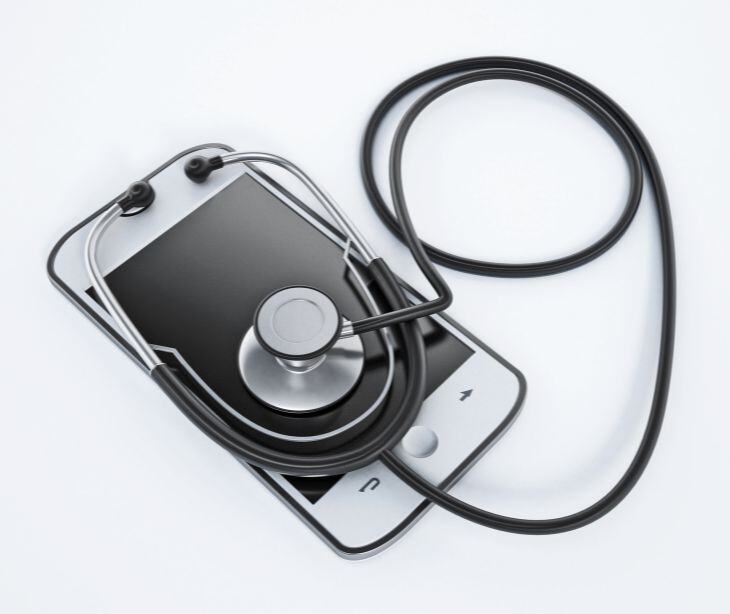
Organizations must implement a structured HIPAA training program to ensure compliance with the Health Insurance Portability and Accountability Act (HIPAA) when using text messaging in healthcare.
By implementing comprehensive HIPAA training programs, healthcare organizations can minimize the risks associated with texting and maintain compliance with federal regulations. From understanding HIPAA rules to using secure messaging systems and responding to breaches, proper training is essential for protecting sensitive patient information and avoiding costly violations.
Texting in healthcare
A survey conducted in healthcare emergency departments found that “78% of respondents wanted to receive appointment reminders, 56% wanted expiring insurance reminders, and 36% wanted reminders to take their medications.” These statistics demonstrate that more patients prefer texting with their healthcare provider. Therefore, HIPAA compliance training becomes important to safeguard sensitive information handled by healthcare providers.
Text messaging, while convenient, is inherently insecure unless specific measures are in place. Unencrypted texts, for example, can be intercepted, sent to incorrect recipients, or accessed if a device is lost or stolen. HIPAA training for text messaging ensures that healthcare professionals understand these risks and know how to mitigate them to avoid penalties, which can range from fines to criminal charges in cases of severe violations.
Elements of HIPAA training for text messaging
HIPAA training should address the following key areas to ensure that text messaging is used responsibly and securely in healthcare settings:
Understanding HIPAA regulations
At the core of any HIPAA training program is a deep understanding of the legislation itself, specifically the three main HIPAA rules:
- Privacy Rule: This rule establishes national standards to protect PHI. It covers how PHI can be used and disclosed, and outlines patients' rights regarding their health information.
- Security Rule: This rule focuses on safeguarding ePHI through a set of technical, physical, and administrative measures.
- Breach Notification Rule: This rule requires covered entities and business associates to notify affected individuals, the Department of Health and Human Services (HHS), and sometimes the media in the event of a data breach involving PHI.
Healthcare professionals must be trained to understand these regulations and how they apply to text messaging.
Go deeper: Understanding and implementing HIPAA rules
Identifying and handling PHI in text messages
HIPAA training must teach staff how to identify PHI and how it applies in text messaging. Even seemingly innocent messages, like appointment reminders, can contain PHI and must be handled in compliance with HIPAA regulations.
Risks associated with text messaging
Healthcare workers must be aware of the specific risks text messaging poses to patient privacy. These include:
- Unencrypted messages
- Lost or stolen devices
- Wrong recipient
- Lack of audit trails
HIPAA compliant text messaging solutions
To mitigate the risks associated with texting, healthcare organizations must implement HIPAA compliant text messaging systems. These solutions use encryption, secure authentication methods, and other safeguards to protect patient information. Paubox Texting can be used as a HIPAA compliant text messaging platform.
Training should focus on using secure platforms, ensuring employees understand how to use them correctly and why they are necessary, and providing technical training using the systems properly.
Securing mobile devices
HIPAA training should cover best practices for securing mobile devices used for text messaging, including:
- Password protection: Devices should be protected with strong passwords or biometric authentication to prevent unauthorized access.
- Encryption: Any device that stores or transmits ePHI must use encryption to ensure data cannot be intercepted or accessed by unauthorized users.
- Remote wipe capabilities: In the event that a device is lost or stolen, having the ability to remotely erase its contents is crucial for protecting patient information.
Patient consent and authorization
HIPAA requires healthcare organizations to obtain patient consent before communicating via unsecured channels such as text messaging.Patients must be made aware that while convenient, texting is not always secure, and they should have the option to opt out of this form of communication.
Best practices for HIPAA compliant text messaging
In addition to formal training, healthcare organizations should adopt best practices to ensure compliance, including:
- Using secure messaging platforms: Always use HIPAA compliant platforms for sending texts that contain PHI.
- Monitoring and auditing: Regularly audit messaging systems to ensure compliance and identify potential vulnerabilities.
- Clear policies and procedures: Establish and enforce clear policies on the use of text messaging within the organization.
FAQs
What is HIPAA, and how does it apply to text messaging?
HIPAA is a federal law that sets standards for the protection of PHI. When healthcare providers use text messaging to communicate with patients or other healthcare professionals, they must ensure that the PHI shared via text messages is protected in compliance with HIPAA regulations.
Is it legal to send patient information via text messages?
Yes, but only if the text messages are sent using a HIPAA compliant messaging platform that meets the standards for encryption, authentication, and audit trails.
What happens if a healthcare provider violates HIPAA while texting?
HIPAA violations can result in serious consequences, including:
- Fines ranging from $141 to $71,162 per violation.
- Civil penalties are based on the severity of the breach.
- Criminal charges in cases of willful neglect.
See also: Higher HIPAA penalties announced
Subscribe to Paubox Weekly
Every Friday we'll bring you the most important news from Paubox. Our aim is to make you smarter, faster.



